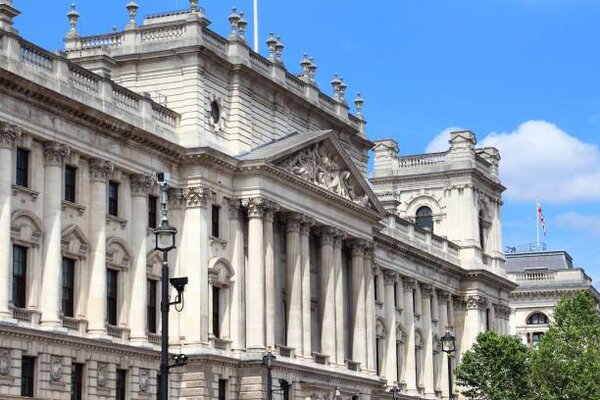Reeves Faces Crisis Over Tax Hike Rumours
Chancellor Rachel Reeves is reportedly considering raising the basic rate of income tax from 20% to 22%, breaking Labour’s flagship manifesto promise. Treasury insiders claim such a rise could raise billions to plug the estimated £30bn black hole ahead of next month’s Budget.
However, political observers warn the move could be “terminal” for both Reeves and Prime Minister Sir Keir Starmer. Critics say the backlash from voters and within Labour ranks would be immediate and severe, branding it the most significant betrayal of public trust in decades.
The speculation comes amid growing pressure on Reeves to show fiscal discipline while balancing Labour’s promise to protect working people’s pay packets. Her “iron rules” on stability are being tested as the government wrestles with sluggish growth and ballooning welfare costs.
Breaking a Core Manifesto Promise
Labour’s 2024 election manifesto explicitly pledged not to raise income tax, VAT, or National Insurance contributions. That commitment was a cornerstone of the party’s message that working families would be protected from further financial strain.
Reeves now faces the impossible dilemma of either breaching that promise or failing to meet her fiscal targets. Political commentators warn that any move to increase income tax would undermine public confidence in both her leadership and the wider Labour project.
Senior figures across Westminster say the party cannot afford to lose credibility so soon after taking office. “Breaking faith with voters on tax would undo months of effort rebuilding Labour’s economic reputation,”
Treasury’s Push for Fiscal Stability
Treasury officials have reportedly presented a strong case for the hike, arguing that a one-off rise in income tax could reassure markets about the government’s commitment to financial discipline. They believe this would lower borrowing costs and signal stability to investors.
Officials claim the measure would demonstrate that Reeves is serious about “paying the bills” and reducing the deficit, while avoiding multiple smaller tax increases. Economists backing the plan argue that higher income tax would hurt growth less than hikes to corporation or capital gains taxes.
Nonetheless, political aides have warned Reeves that market confidence is no substitute for voter confidence. One Labour strategist described the proposal as “economically clever but politically catastrophic.”
Economic Logic vs Political Fallout
Supporters of the potential increase argue that the UK’s effective personal tax rate remains among the lowest in the G7, even after recent adjustments to National Insurance. They suggest a modest rise could still leave Britain competitive internationally while generating up to £8bn annually.
But opponents say it would have devastating effects on disposable income and consumer confidence. For an average worker, a two-percentage-point rise could mean losing roughly £500 a year money that many families cannot spare amid rising living costs.
Analysts also fear the policy could further slow economic recovery. “Reducing take-home pay now would squeeze spending and choke growth just as the economy shows early signs of stabilisation,” warned one economist.
Mounting Division Within Labour
Reports suggest deep unease inside Labour’s ranks, with MPs warning that the move would contradict the party’s promise to shield working people. Some have called for Reeves to explore wealth or property taxes instead, arguing that the rich should shoulder more of the burden.
Union leaders are also expected to oppose any plan that targets workers’ incomes while corporate profits remain strong. “If Labour taxes work instead of wealth, it will be punished at the ballot box,” one senior union official said.
The potential rift threatens to destabilise Starmer’s government, already facing mounting criticism from both the left and right over its economic direction. Party insiders fear an income tax rise could split the Labour base and alienate core supporters.
A Risky Strategy Before the Budget
Some analysts believe the speculation may be part of a deliberate strategy by Downing Street to manage expectations before the 26 November Budget. Floating unpopular ideas early could make sticking to existing tax pledges appear like a political win.
However, others warn that even rumours of breaking tax promises erode public trust. “Once you raise the possibility, the damage is already done,” said a senior political commentator. “Voters don’t forget broken pledges they remember who made them.”
Reeves now faces a delicate balancing act: restoring fiscal order without triggering a political meltdown. Whether the Chancellor can navigate that divide may determine the survival of both her career and the government itself.
Future of the Gig Economy (title 7)
The future of the gig economy is poised to undergo significant changes, with increased regulation and oversight on the horizon. As HMRC ramps up efforts to enforce tax compliance, gig workers must remain vigilant and adapt to evolving requirements. While heightened scrutiny may initially present challenges, it could also pave the way for enhanced support and resources tailored to the needs of gig workers. By staying informed and proactive, individuals in the gig economy can effectively manage their tax responsibilities and navigate potential pitfalls. Embracing these changes early on will be instrumental in not only ensuring compliance but also fostering resilience and sustainability within the gig economy. As the landscape continues to evolve, proactive adaptation will be key to thriving in this dynamic environment.










